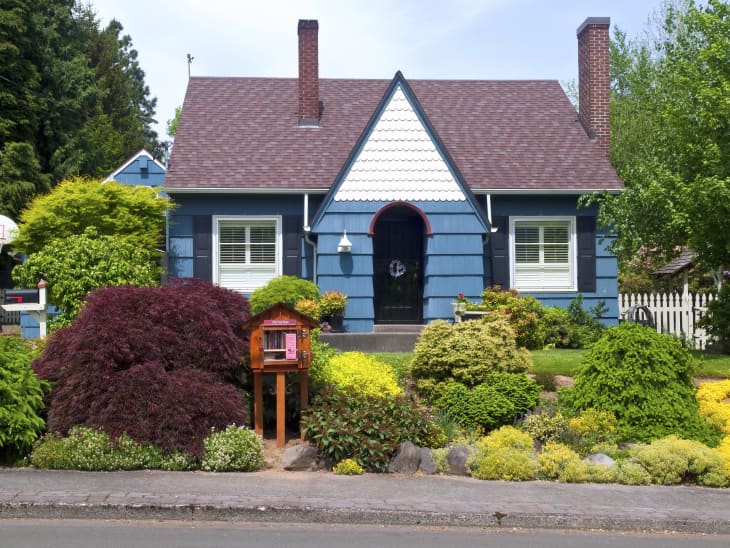My German Grandmother Bought 6 Homes in Her Lifetime. Here’s Her Best Real Estate Advice

My Grandma Joann and I talk several times a week — and at some point during every call, she generously doles out advice about whatever we’re talking about. I’ll admit: In my high school and college days, I wasn’t so eager to hear my German grandmother’s old-fashioned “life hacks.” But now, I don’t just listen: I actively ask her for hard-won wisdom about everything from cleaning to parenting and most recently, money.
A few months ago, my husband, kids, and I relocated to Wisconsin (in part to live closer to her). I knew she’d be excited to have us nearby, but I also wanted her input on the move because she’s one of the most financially savvy people I know.
Over the years, my grandma has bought six houses of all shapes and sizes — but homeownership didn’t come easily at first. Both of my grandparents grew up in a small, mostly German town in Wisconsin, and after spending entire paychecks to lease an upstairs apartment, they worked hard to come up with the money to buy their first house. One thing all their future purchases had in common? My grandma and grandpa always made sure their home expenses stayed within their financial means. Here’s how they did it, plus the tips she’s passed on to me.
Save as much as you can for your down payment.
My grandma’s first piece of advice? Have as much cash on hand as you can when you buy. Now is a great time to purchase a home thanks to low interest rates, but another way to keep your payment low is to put as much down as you can. When they bought their first home in the 1950s, my grandma and grandpa made it work by putting her entire paycheck toward savings and using his paycheck for spending. Obviously, grandma says, it’s best to put down 20 percent if you can — but if not, focus on saving as much as you can beforehand so you don’t pay as much in interest over the years.
Don’t buy a house that’s way above your income.
One lesson I learned from my grandma when we bought our current house: What you can “afford” isn’t necessarily what you should buy. Maybe you’ll be pre-approved for $400,000, but lots of factors play into how much you’ll spend on a house each month, from property taxes to interest and private mortgage insurance. Plus, when you own a home, you’re also responsible for expenses like repairs and maintenance.
“I think it’s a good idea to stay at the lower end of what you can afford to leave room for unexpected expenses,” my grandma says. “That’s especially important if you don’t have savings and you couldn’t afford your house if you lost your job.”
Buy a house you’ll be able to sell.
Lastly, my grandma says when you’re looking for a house, don’t just think about your own wants and needs. You’ll also want to think about resale from a future buyer’s perspective. You may not mind only having a one-car garage, but if it’ll detract future owners from your home’s listing, think twice. For example, when my grandma bought her first house, she made sure it had a formal dining room and basement to attract future buyers. If you’re not sure, hire a realtor you trust and ask their advice. You’ll be glad you did the extra work on the front end to ensure your financial security down the road — I know my grandparents were.